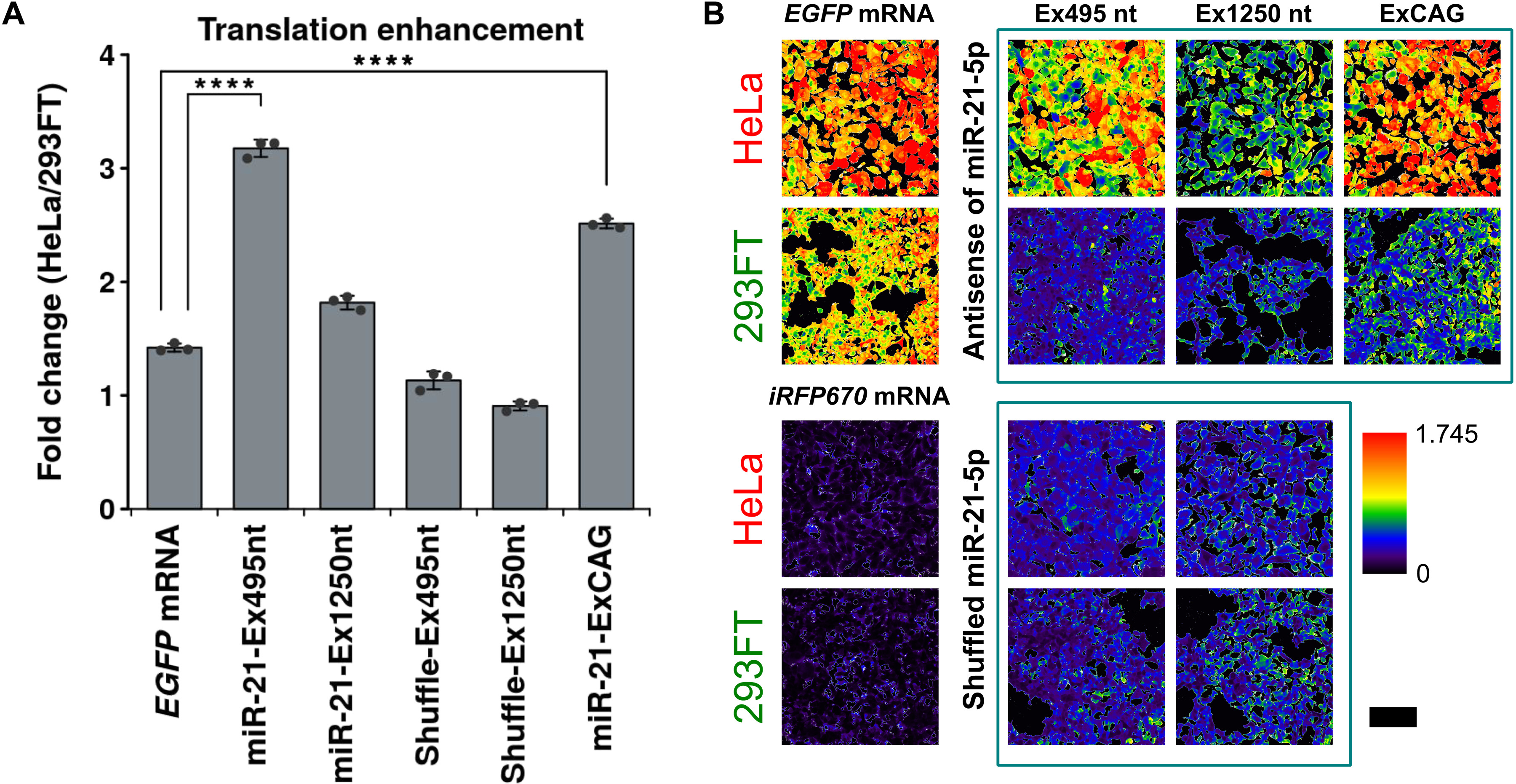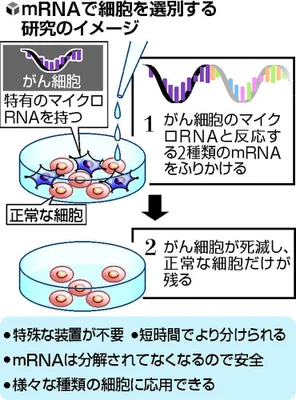


Kyoto University: Significant reduction in iPS treatment costs: Artificial synthetic mRNA
-Utilizing messenger RNA (mRNA)-
Center for iPS Cell Research and Application, Kyoto University
Professor Hirohide Saito Team
Using mRNA,
Whether the cells can be used for transplantation in regenerative medicine
We have developed a method for sorting quickly and safely.
Significant reduction in iPS treatment costs:
The cost of iPS treatment is tens of millions of yen or more per person.
The cost of treatment using iPS cells may be significantly reduced, he said.
paper:
It was published in the US online scientific journal Science Advances on the 6th.
Conventional problems:
Currently, in the determination process of cells for iPS transplantation, a special device of 10 million yen is used.
“Irradiate each cell with a laser to distinguish between normal cells and cancer cells.”
It took 1 to 3 days just to select the cells used for one transplant.
This improvement:
In “medium in which human cancer cells and normal cells coexist”,
It was sprinkled with “artificial synthetic mRNA” and cultured for several hours.
as a result,
With “95-98% accuracy, which is almost the same as when using a laser device”,
Normal cells could be selected.
Since “mRNA is rapidly degraded in cells”, it is highly safe.
Artificial synthesis of mRNA:
Professor Saito et al.
We focused on “the existence of microRNAs with different sequences depending on the cell type”.
Crafted to “kill only the microRNAs of cancer cells”
Two types of mRNA were artificially synthesized.
Professor, Tokyo Medical and Dental University (Nucleic Acid Medicine)
Hiroshi Takashi
MRNA can be synthesized according to the sequence of microRNA.
To the cells to be transplanted
Even if it is mixed with other cells or cancerous cells
Foreign matter can be easily sorted.
This method is very practical.
It can be said that it is a proposal for a new way to use mRNA.
Medical / Health: News: Yomiuri Shimbun Online
https://www.yomiuri.co.jp/medical/20220107-OYT1T50064/
Synthetic gene circuits that improve stem cell quality|News and Events | CiRA | Center for iPS Cell Research and Application, Kyoto University
https://www.cira.kyoto-u.ac.jp/e/pressrelease/news/220106-040000.html
A versatile and robust cell purification system with an RNA-only circuit composed of microRNA-responsive ON and OFF switches
Abstract
Human induced pluripotent stem cells (iPSCs)
are promising cell resources for cell therapy and drug discovery.
However,
iPSC-derived differentiated cells are often heterogenous and need purification using a flow cytometer,which has high cost and time consumption for large-scale purification.
MicroRNAs (miRNAs)
can be used as cell selection markers, because their activity differs between cell types.Here,
we show miRNA-responsive ON and OFF switch mRNAs for robust cell purification.The ON switch
contains a miRNA-target sequence after the polyadenylate tail, triggering translational activation by sensing the target miRNA.By designing RNA-only circuits with miRNA-ON and -OFF switch mRNAs
that encode a lethal ribonuclease, Barnase, and its inhibitor, Barstar,
we efficiently purified specific cell types, including human iPSCs and differentiated cardiomyocytes, without flow cytometry.
Synthetic mRNA circuits composed of ON and OFF switches
provide a safe,
versatile,
and time-saving methodto purify various cell types for biological and clinical applications.
https://www.science.org/doi/10.1126/sciadv.abj1793